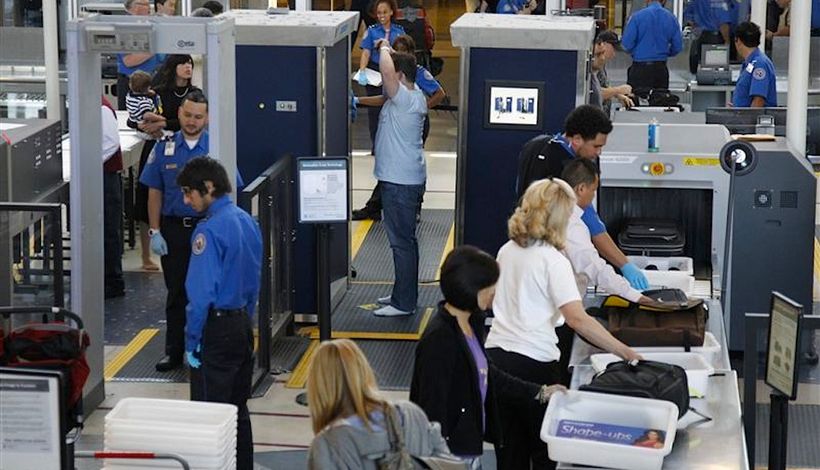Why Airport Security Is So Important!
Airport security has evolved with time. Before 1960’s, airport security wasn’t a big issue and was not that strict.
But a series of high jacking and terrorist attacks that took place eventually changed the entire airline security industry. These incidents led to the creation of the modern airport security system.
We have often seen how people get angry and agitated during security checks. But it is a necessary measure which must be taken to avoid incidents that can cause you harm.
Here are the reasons why airport security is so Important!
1.PROTECTION AGAINST TERRORISTS

High jackings of various airplanes in the 1960s and 1970s led to the system of screening, ticketing and monitoring procedures, which were followed till 2001.
However, all this changed after the 9/11 incident. It was a wake-up call for authorities who had become complacent with airport security.
New security measures have been developed to stop more elaborate and intelligently planned actions by terrorists.
Things are different now. It is difficult to get through airport security even with a bottle of water. These tough security measures have helped airlines avoid potential terrorist threats.
2.FIGHT AGAINST NARCOTICS

Drugs trafficking went up very quickly once smugglers started using airplanes. Drug lords like Pablo Escobar and others made billions using the flying routes to transport drugs.
This had a negative effect on the aviation industry, affected the society and disrupted the economy countries where drug trafficking was prominent.
Even today we see reports of people coming up with new ways to traffic drugs on airplanes, but modern day airport security measures have helped to catch the people responsible.
3.PREVENT SMUGGLING

Apart from drugs, airport security has been trained to detect different products that are transported illegally across borders on airplanes.
People in the past have tried to carry things like gold, stolen antiques and in some cases, rare and exotic animals in carry-on bags, but airport security has been successful in stopping such practices.
4.CYBER-SECURITY

Airport security doesn’t only involve security checks before boarding a flight.
Hackers are coming up with new and sophisticated ways to attack aviation network computers, Air Traffic Control systems and gain unauthorised access to airport and airline databases.
With the aviation industry becoming heavily dependent on digital technology, cyber-security has become a serious and urgent concern.
Authorities and Airlines are investing heavily in cyber-security and have been able to tackle cyber threats which can cause heavy financial losses and disrupt the air transportation network.
5.PROTECTS PASSENGERS INSIDE AIRPORT

With mass shooting incidences on the rise, airport security keeps passengers protected inside the airport.
If there was no airport security, the airport would be left vulnerable to surprise attacks from terrorists and criminals.
Security measures taken at the airport, discourage criminals from committing such crimes. CISF (Central Industrial Security Force) is a paramilitary organization that looks after the airport security in India.
With the advancement in technology, airports are now taking the help of modern tools and machines to tackle potential threats to the flyers and make air travel safer. Here are a few examples of these modern machines!
1.A.I.T SCANNERS

Since its introduction in 2007, Advanced Imaging Technology(AIT) scanners have replaced manual checking at many airports.
These scanners help the security personnel detect any concealed (purposely or not) metal, plastics, ceramics, chemical materials and explosives with the help of 3-dimensional images created by the machine after scanning the passenger.
2.BIOMETRIC SYSTEM

The Biometric Boarding System has had a positive effect on an airport’s security all around the world.
Biometric scanners at airports help security identify the passenger and get their information which is present in the government’s database.
This helps the security personnel to determine whether the passenger is a potential threat or not.
3.MRI LUGGAGE SCANNERS

These scanners are similar to MRI scanners present at the hospital.
They help airport security detect liquids and prohibited items in checked-in luggage.
They are currently being used at airports around the world such as London’s Luton Airport and Schiphol Airport in Amsterdam.
4.CYBER-SECURITY SOLUTIONS

With airports adopting smart technology, aviation cyber-security solutions are being set up.
This software protects aviation networks, computers, and databases from cyber-attacks and unauthorised access.
Due to globalization, airlines are expanding their operations worldwide and are not limited to the country of origin. That is why advanced cyber-security solutions have become a prominent tool for maintaining security.
Airport security is important because it keeps the passenger at ease while flying. It assures that the airplane will make it to the destination safely and the person sitting beside has been deemed as a safe flyer.
If you want to know about your airline’s security policy and location of security checkpoints within the airport, look no further. Simply download the AirWhizz app and get all the information you need about airport security on your phone itself.
Have a safe journey and Fly Stress-Free!



